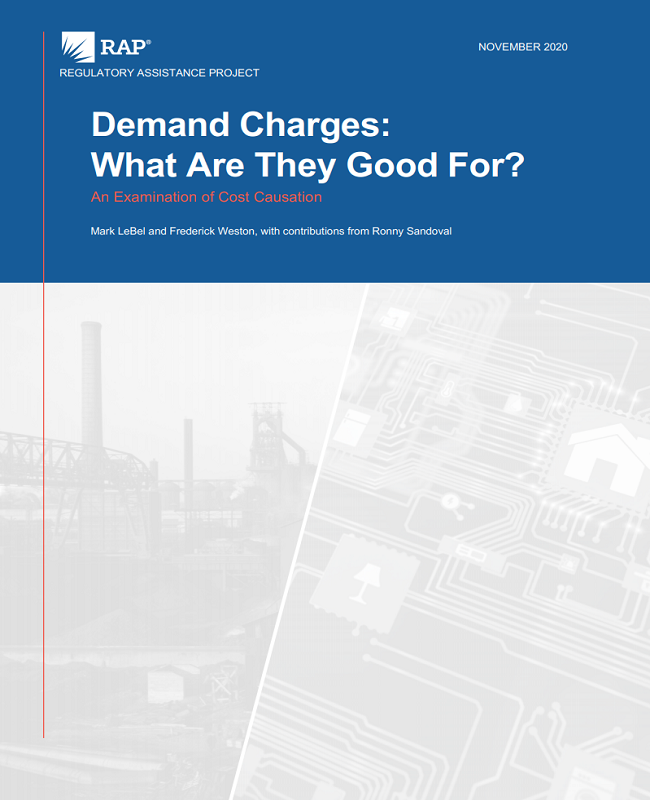Demand charges have existed since nearly the beginning of the electric industry. Although utilities often favor them, economists have continually questioned whether these rates — applied to an individual customer’s maximum short-term usage in a billing period — are an efficient form of pricing. This paper does a deep dive on demand charges and cost causation. Like many analysts from the past, the authors find that demand charges have made sense only as a proxy and are not a general solution for shared capacity costs. Furthermore, the changes occurring with a modern grid are undermining the conditions that made such a proxy reasonable.
Finally, even a demand charge that recognizes to a certain extent the time-dependent nature of costs — a peak window demand charge — retains many of the arbitrary and inefficient characteristics of traditional demand charges. Dramatic decreases in the cost of sophisticated metering, which enable a peak window demand charge, can also facilitate superior time-varying rate options.
More About this Resource
Publisher: Regulatory Assistance Project
Date: November 10, 2020
Type: Research Reports
Countries: United States
States: None
